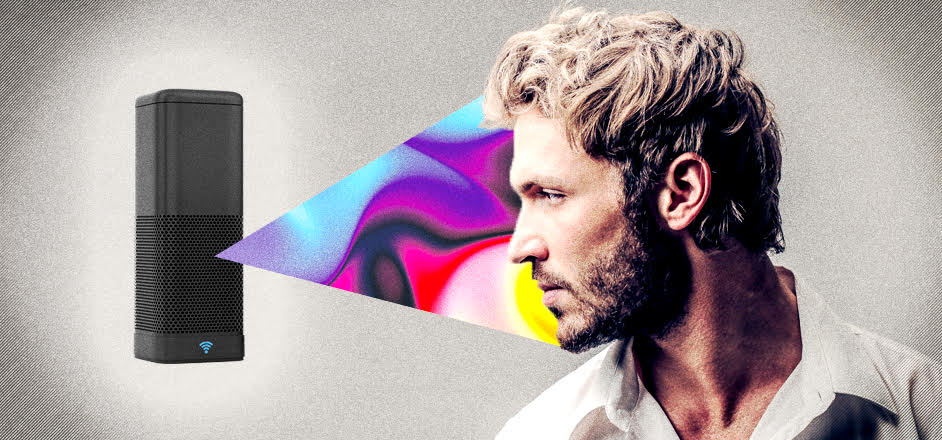Given the fact that MDMA became popular at concerts and raves due to its ability to make music sound a whole lot better, it should be of no surprise that the two have a very close, very symbiotic relationship.
In fact, it's a relationship that professional MDMA facilitators — people who either legally or secretly treat their clients with the drug — are currently looking to exploit. Music, it turns out, makes the stuff work much better.
But, just what type of music exactly? And why do a few sound waves here and there make or break a roller's experience?
MDMA pros revealed their secrets to us.
Most play long songs with big highs and lows. Classical is popular. So is new age.
No pop songs. No rap. EDM isn't as popular as you'd think.
“Selena,” an underground MDMA facilitator plays music through most of her sessions (read our interview with her here).
Since most people are nervous at the beginning, she sets the scene with soft, soothing music to help people calm down. Then, once they’re chilled out, she’ll put on something to get you to feel the MDMA more deeply — stuff like Jonathan Goldman, Kamal, Ishq, Craig Kohland and Biomusique, mostly ambient, strange and vaguely eastern sounds with chimes, bowls, distant voices and nature sounds … like what you'd hear at the end of a yoga class.
That just the warm-up, though. When the MDMA really kicks in, Selena moves on to harder, more driving sounds. She says she’s trying to get people to feel all their emotions, happy and sad. The music she uses for that is drum-filled and powerful; "music that takes people into the depths of their soul, darkness, struggle, then brings them out to touch the heavens and bliss," she explains.
A friend of a friend of hers made the music custom for her type of work.
What Selena is doing here is more than simply creating a mood or subjecting her clients to her taste in music — she’s harnessing the power of music to make the MDMA affect people more deeply.
Scientists have studied the ways MDMA and music interact, their findings indicate that music actually helps flood the brains of people on MDMA with even more dopamine and serotonin than already get released in the presence of the drug, essentially doubling down on their positive effects like mood regulation and improvement.
In one 2008 study, researchers gave rats MDMA and studied their brains. Some rats on MDMA were kept in silence, while others were serenaded with the sweet sounds of "The Very Best Euphoric House Breakdown," a CD with all kinds of different music by Jamiroquai, Toni Braxton and Kira. They found that the rolling rats who listened to music had more happiness-boosting serotonin and dopamine in their brains than those kept in silence.
A different study found that music pumps up the sex drive for animals on MDMA. Rats, like humans, are less sexual when given MDMA. But the scientists found that this sexual laziness happened "only in absence of music stimulation” — loud music made rats get back to getting busy, and techno did this better than so-called "slow music.” Basically, whatever the shit is they play at raves is the shit that makes people on MDMA the happy, proud owners of boners.
Perhaps it’s no surprise, then, that MDMA lovers have a lot of guidelines online for what to play during a trip. There are Reddit threads like “favorite MDMA music,” “playlists for rolling,” and a whole Reddit sub called MdmazingMusic. (Greatest MDMA song? Several votes come in for Eric Prydz's "Opus").
However, professionals who treat their clients with MDMA for a living aren’t specifically trying to make people ecstatic … they're trying to get the most out of the drug.
An organization called MAPS, which is currently is conducting studies aimed at getting MDMA approved for treatment of PTSD, tells their therapists: "Music should vary in tempo and overall volume … relaxing at first, then in succession more active, more emotionally evocative and later quieter and more meditative." (This is close to how Selena does it.)
MAPS has two playlists full of the music it uses for MDMA online here. The playlists are electronic, acoustic, soaring, ambient music and even music from Clint Eastwood movies. They list them in chronological order for how they might be played during MDMA sessions.
MDMA facilitator Dr. George Greer (who we talked to here), did sessions with MDMA legally before it was scheduled in 1984. Greer played music that was always instrumental or in a language the patient couldn't understand; he played Mahler, Beethoven, Wagner, Faure and Deuter. One of his patients reported that the "details of the music became clear and more beautiful” while he was rolling.
Not everyone finds music so crucial though. An underground MDMA therapist we talked to — call him "John" — says he uses very little music in his practice.
"That new age repetitive music, that's something that I don't care for," John says by phone. Sometimes, he says, if a person gets into a bad trip, he'll play a calm peaceful slow movement of a string quartet by Haydn, Mozart, Beethoven or Brahms to bring them back. "But I don't do it for very long and I don't make it a big part of my work," John says. Mostly, his sessions are filled with silence or talking. As he says, "I think silence is the deepest state there is."
And while John’s entitled to his own (unorthodox) opinion, there’s no arguing that music and MDMA have an enabling relationship with each other; one with applications that extend from the dance floor to the doctor’s office and back.



Leave a Reply
You must be logged in to post a comment.